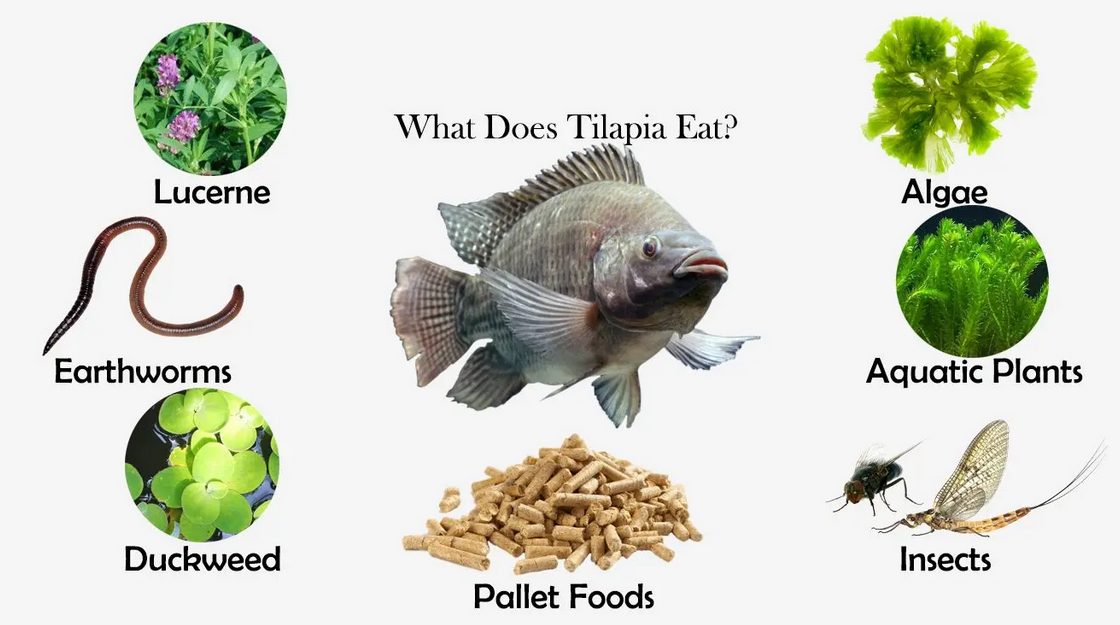Has anyone ever said that they don’t like fishy fish? It happens more often than you might think, which is why mild white-fleshed fish has become such a popular item for dinner. Some people don’t like tilapia, but it’s now the fifth most popular fish species in the US. It has a simple flavor that tends to take on the flavor of the sauce it is served with, and it’s also not too expensive. On top of that, Oceans Alive and National Geographic’s Green Guide say that farmed tilapia is good for the environment and doesn’t contain many contaminants, so you can eat it without feeling bad. Even though people love tilapia, they still want to know what they eat and want to know tilapia facts to make sure they are as safe as they say they are.
Some people have the wrong idea about what tilapia eat. Here are some facts about tilapia that you may find helpful the next time you’re in the seafood section of the grocery store.
Tilapia has become a staple fish in the commercial seafood industry and home aquaculture due to its fast growth, mild flavor, and low cost to raise. However, sensationalized stories about tilapia surviving on feces have turned many consumers away in disgust. Is there any truth to claims that tilapia are “poop fish”? Let’s examine the evidence behind this fishy tale.
The Origins of the Poop Myth
In 2013, a news report claimed tilapia were being fed “poop” at some Chinese fish farms. This referred to the practice of feeding tilapia feces from ducks pigs, and other livestock as a cheap feed source.
The story went viral, giving rise to alarming headlines about tilapia eating poop. Some even extrapolated that all tilapia muscle tissue absorbs the nutrients from feces effectively making the fish no better than eating poop directly.
But these provocative poop allegations stray far from the reality of modern commercial tilapia farming.
Do Farmed Tilapia Actually Eat Poop?
While poop-feeding occurred at a minority of Asian farms lacking proper regulation, it does not reflect standard industry practice today. Here are the facts on tilapia diets:
-
Most farmed tilapia eat a mix of fish meal, plant proteins, algae, and vitamin supplements to balance nutrition.
-
Only unscrupulous tilapia operations feed feces to cut costs on feed. This practice is illegal in the US, Canada, and Europe.
-
No scientific evidence shows tilapia retain significant amounts of nutrients from poop in their muscles. They digest and expel it.
-
Farms must meet legal standards for water quality. Consuming poop would require medicine use, making the fish unfit to sell.
So legitimate tilapia farms go to great lengths to avoid fecal contamination and supply quality feed – not poop.
Do Wild Tilapia Eat Poop?
Like their farmed cousins, wild tilapia found in lakes and rivers exhibit no habit of deliberately consuming feces as food. As herbivorous fish, their natural diet consists of:
- Algae
- Aquatic plants
- Insects
- Zooplankton
- Phytoplankton
- Detritus
Wild tilapia are not known to actively hunt for poop to eat. Their specialized digestive systems allow them to extract nutrients from vegetation, not animal waste.
However, wild fish swimming in polluted waters may ingest small amounts of fecal bacteria incidentally. But they gain no nutritional benefit from poop itself.
Why Did This Myth Catch On?
Several factors explain the viral spread of the tilapia poop claims:
-
Provocative, clickbait headlines easily mislead without full context.
-
Prejudices against “dirty” foreign food production practices.
-
Agenda-driven animal rights groups using shock factor against farmed fish.
-
Public misunderstanding of fish biology and digesting waste.
The reality is tilapia flesh develops its flavor from algae-based feed, not poop. Their digestive systems extract useful nutrients and expel solid waste, like all fish. But this mundane truth lacks sensation.
Does Tilapia Taste Like Poop?
Since tilapia do not actually accumulate significant nutrients from feces, their flavor profile has no fecal taste:
-
Farmed tilapia fed proper rations taste mildly sweet with a delicate, neutral flavor.
-
Algae-rich diets impart a pleasant, earthy taste.
-
Wild tilapia develop a more robust, fishy flavor from their natural diet.
-
Off-flavors result from poor farming practices, not poop consumption.
If you detect any unpleasant waste-like taste, it likely comes from muddy processing rather than poop. Quality farmed tilapia have a clean flavor on par with popular whitefish like cod or snapper.
Are There Health Risks Eating Tilapia?
While the poop claims are overblown, consuming tilapia still carries some potential health considerations:
-
Tilapia have an elevated omega-6 to omega-3 ratio, which may promote inflammation if eaten in excess.
-
Some tilapia imported from Asia contain banned antibiotics and chemicals. U.S. farmed tilapia are stringently regulated.
-
Farm-raised fish have lower mercury levels but lack vitamin D compared to wild fish.
-
Eco-certified tilapia ensures best quality and sustainability standards are met.
Overall, responsibly farmed tilapia in moderation offer similar benefits as other popular whitefish. There are no unique risks from alleged poop feeding.
The Bottom Line on Tilapia
Despite alarmist stories, the assertion that tilapia literally eat and digest poop is false. Both wild and properly farmed tilapia eat plant and algae-based feed only.
While improper practices occurred at some Asian operations, modern regulations prohibit fecal waste as tilapia feed in major producing countries. Tilapia raised under acceptable conditions are absolutely safe and nutritious to eat.
So rest assured there are no feces hidden in your fillet. The tastes, textures, and health benefits tilapia provide are free of any poop influence. Though the truth may not attract clicks, well-raised tilapia make a legitimate, eco-friendly addition to a healthy seafood lifestyle.

